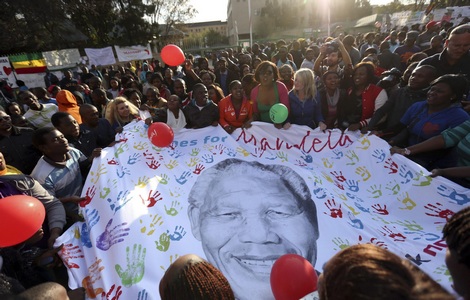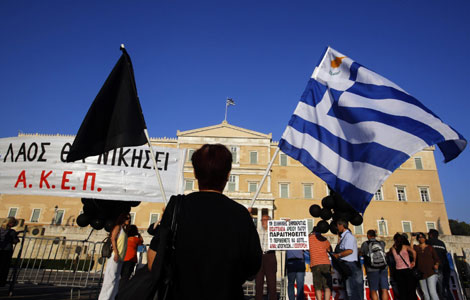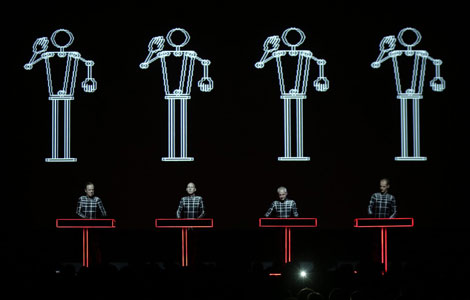

The death toll of last Saturday's Asiana Airlines crash increased to three after another Chinese girl died in the San Francisco General Hospital and Trauma Center on Friday. All of the victims were students from East China's Zhejiang province who went to the US for summer camp.
Hospital spokeswoman Rachael Kagan said the third victim, who was not identified at the family's request, had been in critical condition and treated in the intensive-care unit all week.
There were 307 people on board when the plane crash-landed. As of now, 141 Chinese passengers on the flight have been accounted for, including the three dead.
One of the two teenage Chinese girls who died on July 6 at the scene of the crash was run over by a fire truck, investigators confirmed on Friday. But it is unclear whether she was alive or dead at that moment; the autopsy report could come as soon as next week.
At noon on Friday, 35 students and teachers from North China's Shanxi province left San Francisco by bus, continuing their tour. In the afternoon, 31 other students and teachers from Zhejiang province were onboard Air China flight 986 to return home.
US National Transportation Safety Board investigators hope to interview the three hospitalized flight attendants when possible as well as survivors to gather more information.
Brian Alexander, a partner of Kreindler & Kreindler LLP, said injured passengers should be compensated for economic losses, property damage, medical expenses and potentially other damages.
"The amount of compensation for the Chinese passengers will depend upon a variety of legal factors and who is determined to be responsible for the crash," he said.
He said the airlines have hired one of the best aviation defense firms in California. Alexander said the defense team will try to keep the foreign cases out of the United States, where the victims benefit from the American discovery process and jury system.
To battle the airlines' attorneys who will try to minimize the compensation, he said, the victims' families must retain US lawyers who have a complete understanding of the treaties that govern international flights. Success in aviation product-liability cases and significant experience litigating against top firms who represent the airlines are also important, he said.
If an aircraft problem is suspected, that will open the door to suits against the manufacturer Boeing and possibly other component manufacturers, he said.
There is a suggestion that the auto throttle may not have worked as designed, he said, and there may be other issues concerning the airport and air-traffic control.
Related:
Victim in Asiana crash was run over by fire truck - police
Asiana takes out apology ad in Chinese media
NTSB: No sign of mechanical trouble on Asiana 214
Special:







